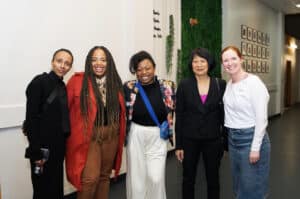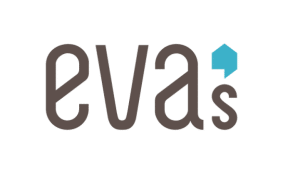Eva’s Initiatives is a proud Black legacy organization founded by Eva Smith. With our new strategic plan and a full equity review implementation in progress, we step boldly into our identity as a Black youth-focused organization. 
72% of the youth in Eva’s programs are Black, as compared to only 9% of Torontonians, and their journeys require specialized approaches to systemic barriers.
A proud Black legacy organization with the distinct needs of Black youth at our core, we break down the barriers of anti-Black racism, poverty, and homelessness — while helping all youth who walk through our doors.
Embodying the Spirit of Ujima, Collective Work, and Responsibility
In striving to be a Black-centred organization, we are committed to making data-driven and evidence-informed decisions. As we progress on this journey, we acknowledge the profound effects of systemic inequities contributing to the disproportionate representation of Black youth in our shelters. Addressing this issue necessitates a comprehensive support framework to dismantle legacies of colonization and Anti-Black racism through collective effort and collaboration.
While Eva’s is dedicated to being a Black-centred organization, we uphold the belief that housing is a fundamental human right, and we welcome all youth facing housing instability. By prioritizing support for those most affected by systemic barriers, we aim to enhance outcomes for all youth through specialized supports.
We recognize that a collective effort is required to reform the systems that affect Black youth. It’s the responsibility of everyone, not just Black individuals, to end anti-Black racism, and we rely on the diverse lived experiences of our full community of staff, youth, volunteers, and supporters to help with this work.
Investing in Equity, Diversity, and Inclusion
Equity, diversity, and inclusion (EDI) are core pillars of our organization. As part of our commitment to EDI, we prioritized funding the development of our equity department. This investment is critical as we continue to build out culturally responsive programming that intentionally supports the specific needs of Black youth experiencing homelessness.
These supports will include programs and services that centre young people’s identities and cultures and affirm their holistic identity, considering the barriers they navigate daily. This approach ensures we are responding to the specific needs of youth instead of compounding the obstacles they are already facing.
Celebrating Eva’s Equity Journey
Values and Principles Informing our Equity Work
- Critical race theory and analysis
- Africentric values and modalities
- Decolonization practices and processes
- Anti-oppression and anti-racism frameworks
- Unpacking interlocking systems of oppression
- Harm reduction
